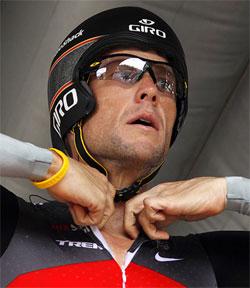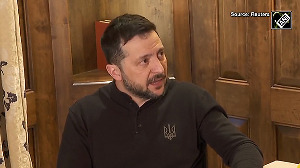Lance Armstrong returned four samples with traces of banned corticosteroids in the 1999 Tour de France, the International Cycling Union (UCI) said on Wednesday, although the governing body added it did not handle them as positive tests.
On Tuesday the Belgian newspaper Het Nieuwsblad published a copy of an alleged internal UCI memo which said a lawyer for the sport's ruling body had said the American's samples from the 1999 showed traces of corticosteroids on four occasions.
 Armstrong, who has been banned for life and admitted to doping his way to seven consecutive Tour titles from 1999-2005, had already admitted to using corticosteroids for a saddle sore in 1999 although he produced a back-dated TherApeutic Use Exemption (TUE) to justify the use of a banned substance.
Armstrong, who has been banned for life and admitted to doping his way to seven consecutive Tour titles from 1999-2005, had already admitted to using corticosteroids for a saddle sore in 1999 although he produced a back-dated TherApeutic Use Exemption (TUE) to justify the use of a banned substance.
"During the Tour, Armstrong was tested 15 times. In the four samples indicated below traces of triamcinolone, a corticosteroid, were found. No other prohibited substances were found," the UCI said, adding that the samples in question were collected on July 4, 14, 15 and 21.
The governing body said the French Ministry of Sports also ruled that no doping offence had been committed.
"The samples taken during the 1999 Tour de France were analysed by the French National Anti-Doping Laboratory in Châtenay-Malabry," the UCI said.
"The French Ministry came to the conclusion that there had been no anti-doping rule violation. In a conversation with the UCI's Dr Schattenberg at the time, the French Ministry doctor confirmed that the presence of traces of corticosteroids found in samples taken from Armstrong was compatible with the use of a skin cream; that the use of a skin cream was accepted as proven by the French Ministry; and that there was therefore no anti-doping rule violation.
"If the corticosteroids had been used systemically (ie. injected or taken orally), the consecutive test results would have all been positive."
The UCI agreed and said that "both the French Ministry and the UCI Anti-doping Commission found that there was conclusive evidence that no anti-doping rule violation had taken place".
Photograph: Eric Gaillard/Reuters










 © 2025
© 2025